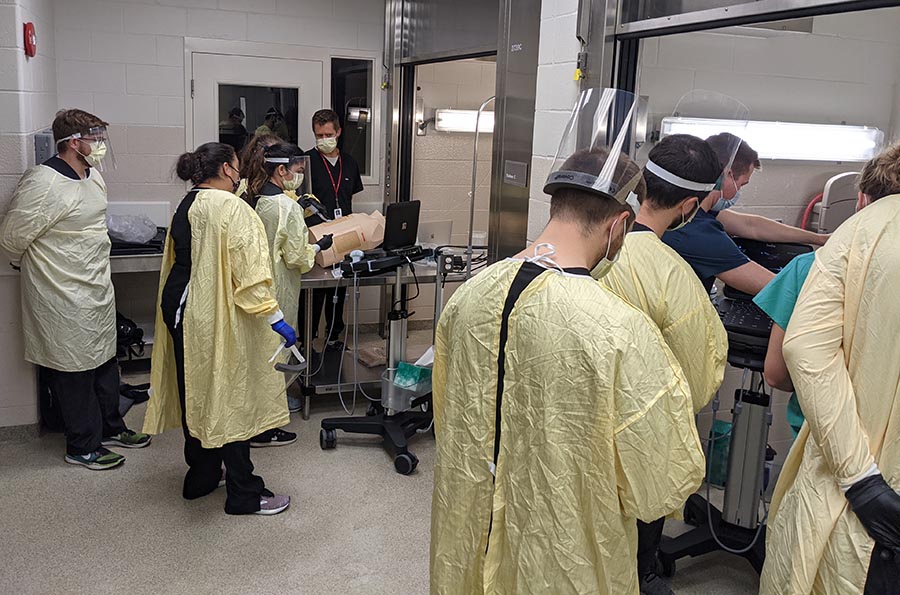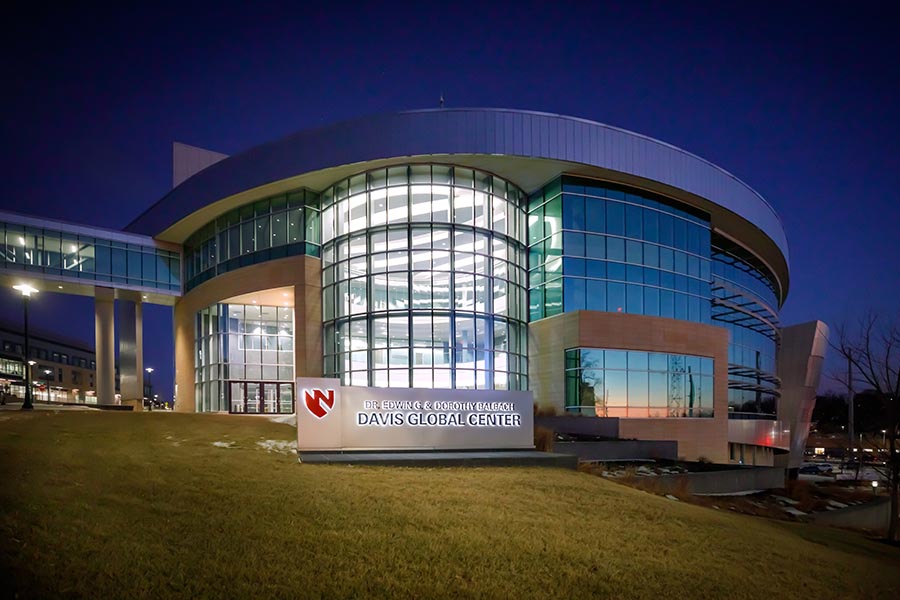Simulation and Procedure Labs

The procedure lab consists of residents taking turns performing rare and/or critical procedures in a controlled environment, typically done quarterly.
The procedure lab is often an educational highlight for procedural comfort and experience.
The lab, which consists of residents taking turns performing rare or critical procedures in a controlled environment, is typically done quarterly. This has many benefits. Residents get a chance to perform the procedure on cadavers, a task trainer or other simulated materials (including 3D printed models) which allows for more realism.
Procedures are performed in an educational setting which increases comfort with the procedure when it emergently needs to be performed. The procedures are also done with faculty present which allows for a discussion on indications for the procedure, alternatives to the procedure, or alternative approaches to the procedure. Residents are able to prepare using curated resources provided by our faculty team.
This lab also creates another environment for research into methodology of education, and implementation of new procedures or approaches to procedures.
The lab is set up and run in association with the College of Medicine Department of Genetics, Cell Biology, and Anatomy. The cadavers are prepared with light embalming to maintain the integrity of the tissues as best as possible.

Simulation lab training is done at the Davis Global Center, a state-of-the-art 192,000 sq. ft. simulation center located on campus.
Simulation training is done at the Davis Global Center, a highly advanced clinical simulation facility. The 192,000 sq. ft. center is made up of five distinct levels that work together to create a safe and innovative learning environment. The simulation lab has proven to be effective in preparing the residents for critical cases.
Residents will typically run through two to four multimodality scenarios during the lab. While a resident assesses the "patient," orders may be entered, imaging studies reviewed and therapies implemented. Mannequins have been equipped to have physiologic responses that are appropriate to their presentation, subsequent declines or recoveries and responses to treatment.
Following the scenario, there is a debriefing session with an attending who will give appropriate critique – praising early diagnosis and appropriate management and pointing out missed critical actions as necessary. These cases tend to be either critical, such as cardiac arrest, or rare, such as tricyclic antidepressant overdoses. Other scenarios may include managing multiple patients or trouble-shooting issues related to procedures such as intubations and tube thoracentesis. Residents have found these situations to be high yield and drive home points that they may only have read about prior to the lab.
This lab also creates another environment for research into methodology of education, and assessment of certain procedural skills.